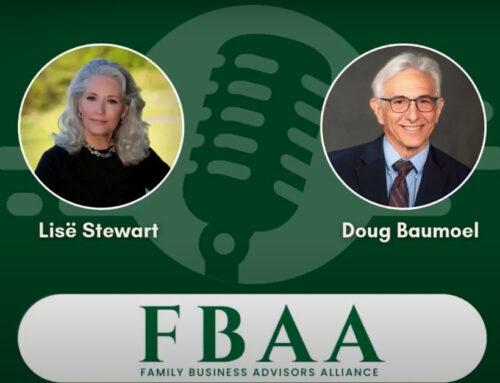What is an Owners Council and Who Needs One?
Bridging Governance Gaps with an Owners Council in Family Enterprises
By Doug Baumoel and Blair Trippe
Estimated read time: 3 minutes
It’s no secret that developing well aligned and engaged owners can be a powerful strategic advantage for the family business. One highly effective solution worth considering to achieve that goal is by establishing an owners council.
An owners council is a representative group of owners within a family enterprise focused on how the interests of shared owners impacts all stakeholders, including shareholders, family members, and the business itself. This council is distinct from the corporate board and may function as a committee of the family council if there are exclusively family owners involved.
The owners council serves a very specific set of purposes: to deliver to the board of directors a concise, clear, aligned message about the owners’ vision for the company; its desired impact on the family through dividends, growth and family employment opportunity; and the values by which the company comports itself both internally and externally.
Key benefits of an owners council
Strategic Clarity and Vision Setting:
The council provides a platform to articulate a clear vision that the owners have for the company, which includes setting growth targets, profitability goals, and upholding the values guiding business operations.
Educational Engagement
It plays a crucial role in educating newer owners about the company’s industry, historical performance, and future projections, thereby fostering informed ownership.
Alignment and Decision Making
The council helps maintain alignment between shareholders and the corporate board with respect to a board-approved corporate strategy, by facilitating effective and timely business discussions that reflect the collective vision and realistic expectations.
Discussion Forum for Crucial Issues
It serves as the right forum for discussing sensitive ownership issues, ensuring that these discussions do not disrupt the board’s or the family council’s meeting agendas. A key benefit of an owners council is that differences among shareholders, such as risk tolerance and liquidity needs, for example, are hammered out at the owners council setting, not at a board meeting. The board is not a good place to have ownership fights. It also preserves the ability of the family council to function as a place to focus on family issues.
Transparency and Influence
By influencing company policy and strengthening open lines of communication, the council helps ensure transparency and alignment of governance needed to sustain business integrity and family unity.
How is an Owners Council Different from a Family Council?
While both councils aim to support the family enterprise, their focus areas differ significantly:
Scope of Focus:
The owners council concentrates on the business aspects of ownership, such as shareholder interests, financial strategies, corporate vision, and corporate governance. In contrast, a family council focuses more on nurturing family relationships, fostering family involvement in the business, and managing family governance and decision making.
Composition and Function
The owners council is typically composed of shareholder representatives and focuses on the strategic and financial aspects related to business ownership. The family council, however, may include a broader family representation and deals with personal relationships, conflict resolution, and promoting family values.
Decision-Making
The owners council has a strong impact on business decisions, influencing the board’s oversight of corporate strategy and the values by which the company comports itself in its industry.
Reasons for Forming Owners Councils – and How They Operate – Can Vary
Some families create an owners council as part of a larger goal to improve their governance. Other families might consider development of an owners council when conflicts occur regarding the business━its behavior in its industry, distribution policy, corporate vision and strategy, or leadership. Others may see a transition point coming, such as a large cohort of cousins reaching maturity, and want to plan for the future, to avoid a crisis by putting in a structure proactively.
Owners councils vary in size, formality, and responsibilities. There is no “one size fits all” approach. For example, smaller families whose members are geographically close to one another could achieve their goals in annual or quarterly meetings which focus on their roles as owners. Other families require more structure. Typically, one person on the ownership council has a seat on the board, and that’s their conduit for owner information back and forth to the board in addition to shareholders meetings.
Seek Guidance When Establishing Your Owners Council
Continuity Family Business Consulting offers specialized expertise in both corporate and family governance. Our team can help you assess your needs, design an effective council structure, and implement strategies that align with your business goals and family values. Contact us today to learn how we can help you optimize decision-making and governance in your family enterprise.
Stay in the Know
Get our latest articles, tips, and insights delivered straight to your inbox.
Share this Insight, choose your platform!
About Us
Continuity Family Business Consulting is a leading advisory firm for enterprising families. Using a full suite of service capabilities, we help families prevent and manage the single greatest threat to family and business continuity: conflict. It is through this lens that we advise our clients and build customized strategies for succession planning, corporate governance, family governance, and more. We help families improve decision making, maximize potential and achieve continuity. To inquire, contact us.












